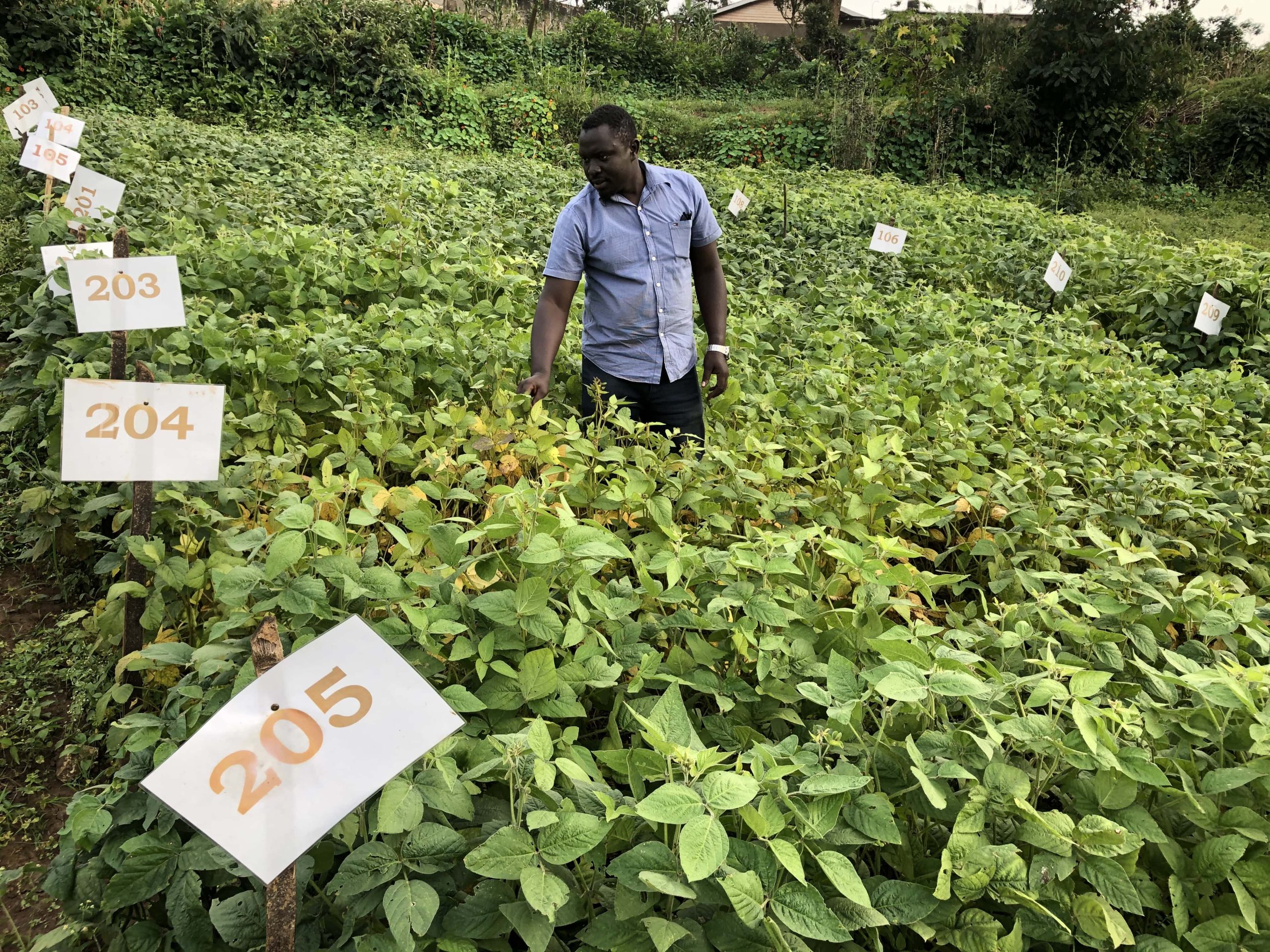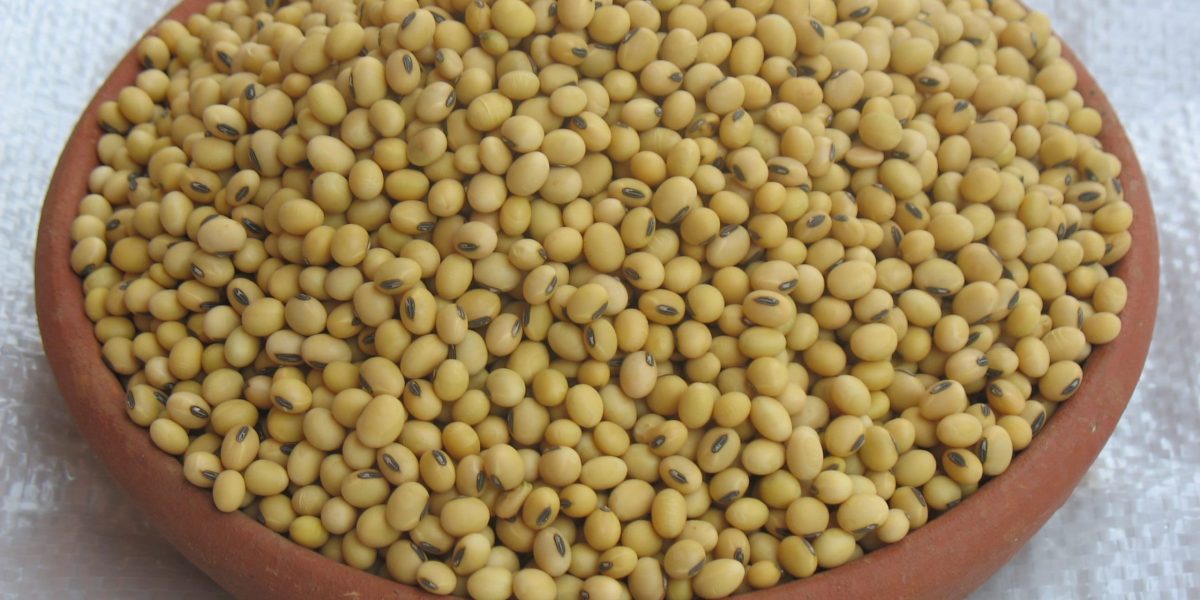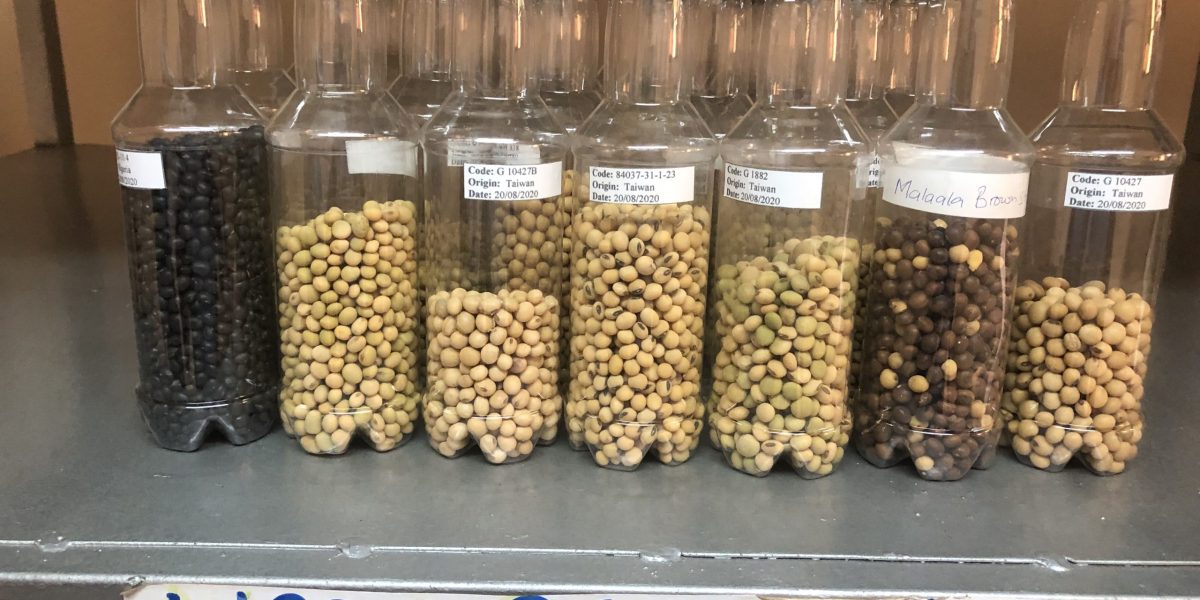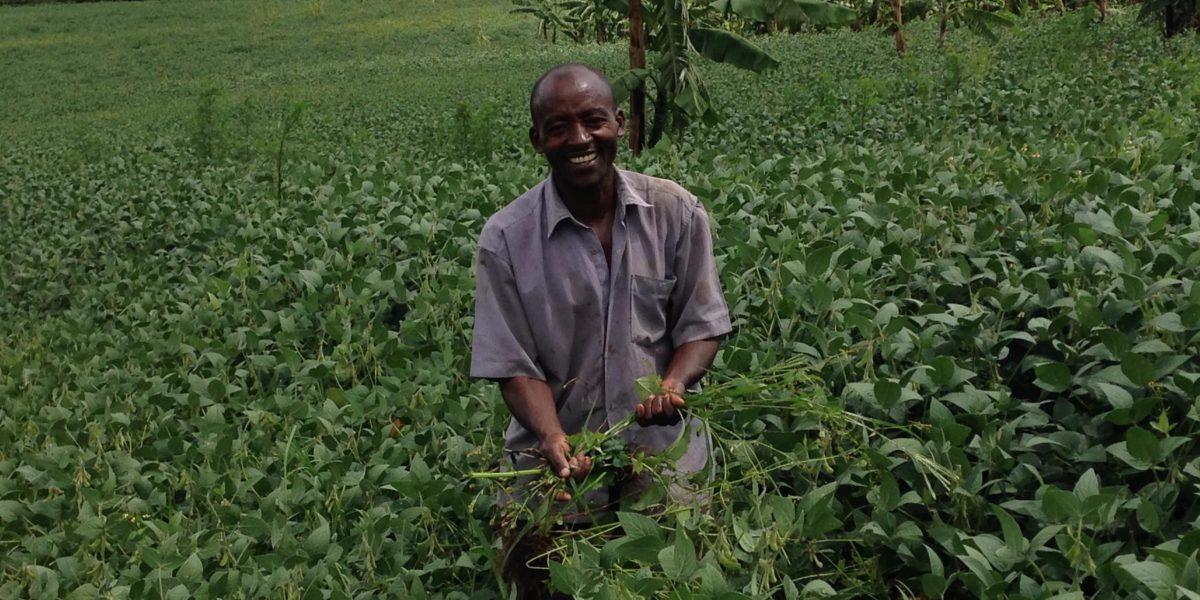Asian soybean rust is a major threat to worldwide soybean production at present. Host plant resistance offers the most sustainable control strategy to resource poor farmers in sub-Saharan Africa and worldwide.
Using 13 soybean lines bred for resistance to soybean rust, and 2 checks, yield trials were conducted at four regions of Uganda for four consecutive seasons to determine yield stability and reaction to soybean rust disease. An additive main effects and multiplicative interaction (AMMI) model was used to assess the yield stability of the soybean lines.
Stable lines identified included MNG 7.13, MNG 8.10, and MNG 1.63, which showed the lowest environmental interaction. These lines also out yielded the local checks by over 300 kg ha−1, indicating that they have potential to boost soybean yields in the tropics. Line MNG 8.10 showed adaptability to most of the locations and had the highest yield among the three most stable lines, making it the most promising line; it is therefore recommended for release to improve soybean production and productivity in the region.
Click HERE for more




